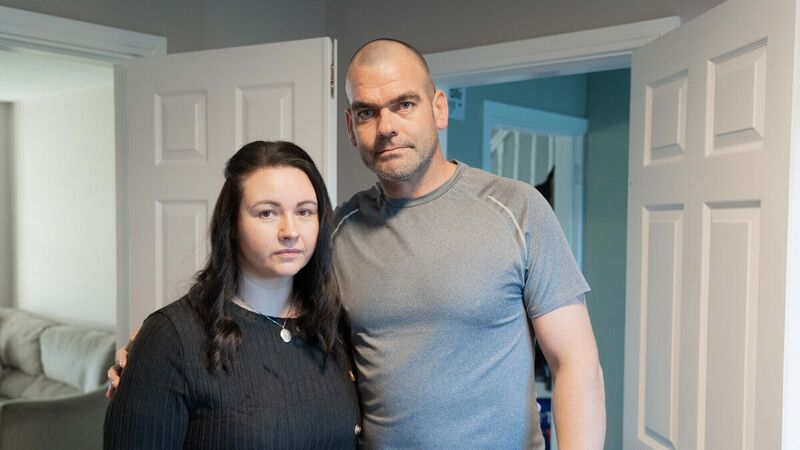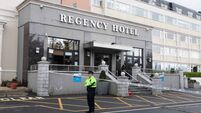'I hope I can get the surgery I need. I don’t want to lose my leg'

Sarah Costello and her husband Stephen at their home in Meath. Pictures: Barry Cronin
Waking up on life support, terrified and unable to talk with tubes in her mouth, Sarah Costello was told she was lucky to be alive.
Within seconds of a routine keyhole surgery to check for endometriosis, the scope had pushed far beyond Sarah’s womb above her spinal column and severed her main aorta.














